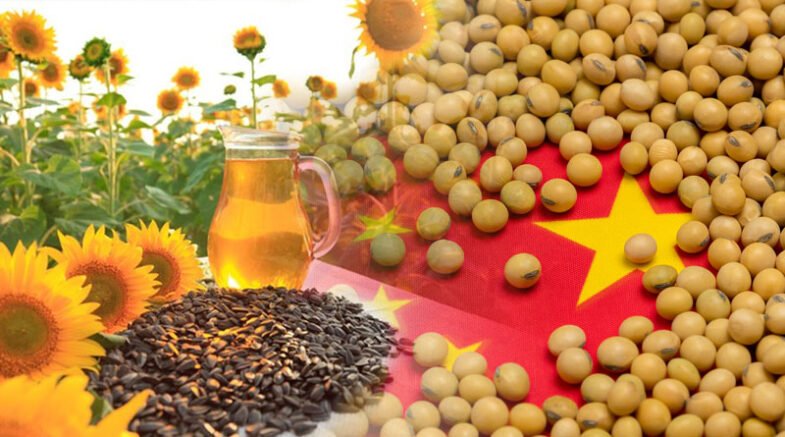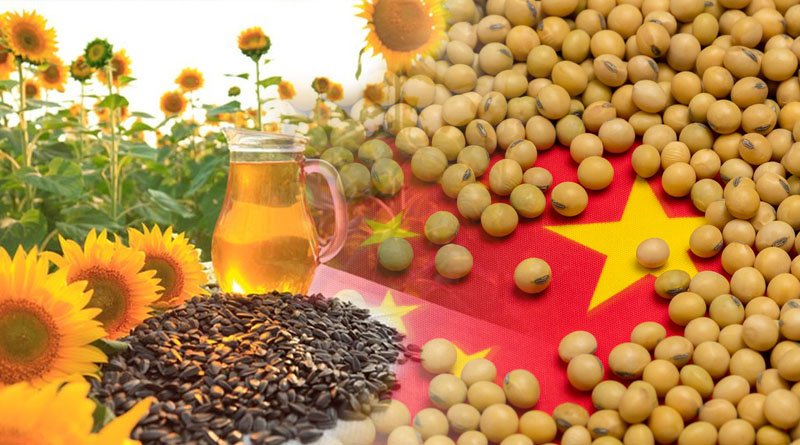The annual consumption of cooking oil in Pakistan is around 5 million tons, but due to the low economic potential of the oilseeds industry, farmers do not prefer it.

Chinese company Wuhan Qingfa Hesheng and a Pakistani company Evyol group collaborate to provide high-quality hybrid seeds to Pakistani farmers in order to help the country meet its edible oil demand and support its foreign exchange reserves.
The annual consumption of cooking oil in Pakistan is around 5 million tons, but due to the low economic potential of the oilseeds industry, farmers do not prefer it. To meet demand, the country must import approximately 89 percent of its oil, costing the country 3.6 billion US dollars per year.
Ghazanfar Ali, Evyol Group’s head of marketing, told Xinhua that it took them ten years to develop hybrid seeds variety that is compatible with the local climate, produces a good yield, and is good for human health.
When discussing the crop’s potential, he stated that its standard 2 kg pack is enough to cultivate 2 acres of land, and the farmer can get 1.5 tons of yield out of it, which is more than 10% more than the yield from other varieties currently available in Pakistan.
Zhou Xusheng, director of Wuhan Qingfa Hesheng Seed Company’s international business department, told Xinhua that his company is working on transferring technology to Pakistan to make it more efficient in smart agriculture.
“Through this project, we hope to transfer harvesting technology so that farmers can use attachments on harvesters they already own to reduce waste,” he explained. His company also plans to install processing units across the country, so that people in villages can install them and produce processed oil for themselves and sell it to others, according to Zhou.
He stated that the hybrid seed is suitable for the environment throughout Pakistan, and this year they sold 11 tons of seeds across the country, which will be cultivated on 20,000 acres, with a target of 100 tons for next year, which will bring a significant change to Pakistan by assisting the country in becoming self-sufficient in edible oil production.
Zhou added that the Chinese company will also buy back some of the farmers’ canola harvest and send it to edible oil factories so that both farmers and factory owners can realise the potential and health benefits of the oil.
“Pakistan spends a lot of money to import oil and only receives the finished product. However, when oil is produced locally, it creates job opportunities, builds an industrial chain, and uses the cakes left over from oil extraction as a high-energy canola meal for cattle,” he went on to say.
Chattha stated that they have over 800 cows in the dairy farms in the area and that, in order to provide them with good quality food, they must import canola meals, which is a significant financial burden due to the depreciation of the local currency.
“Aside from getting and selling edible oil, our main goal in sowing canola was to produce cattle meal,” he explained, adding that he observed swarms of bees on the flowers during the current full bloom season, and that they plan to work on beekeeping next year. ”
The yellow flowers in the vast plain of Gujranwala symbolise the beauty of the Pakistan-China friendship, through which a revolution in Pakistan’s agriculture sector can be brought about, and edible oilseed production is a step forward in that direction,” Ali said, standing near a promotional board informing people about the health benefits of Chinese canola.
